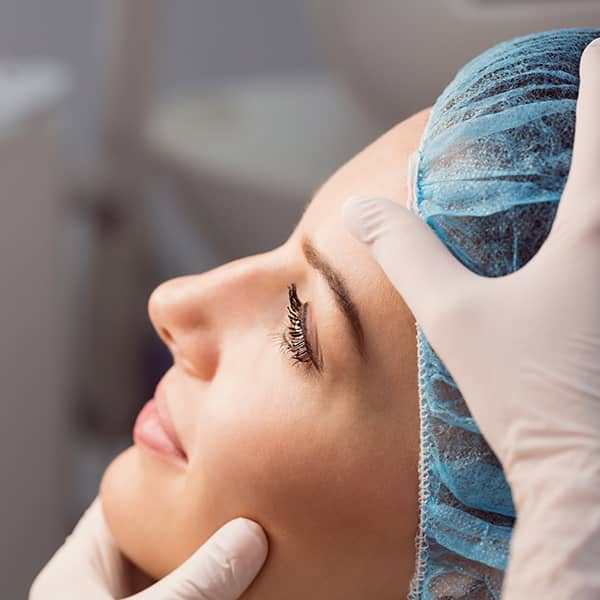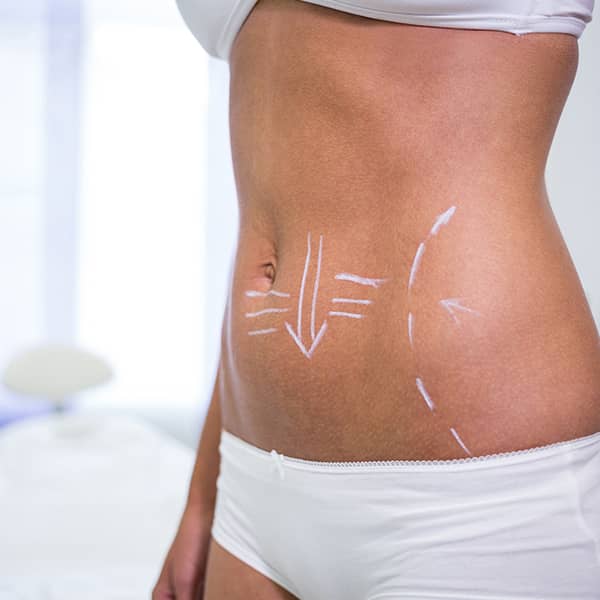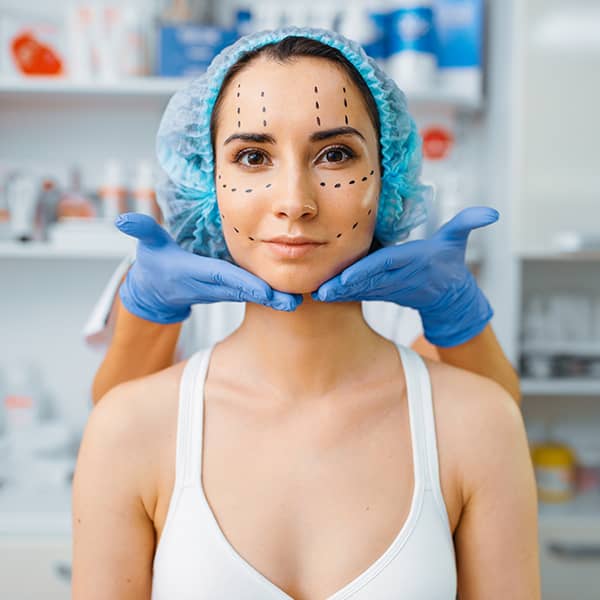Preparation
There are many things to consider with any elective surgery, such as the type of procedure you want and the risks involved, and plastic surgery is no exception. After you’ve decided to have surgery, there are still some things to think about. Plastic surgery is a big decision, and many patients have questions and queries about how to get ready for surgery and what is involved during recovery afterward.
Before your surgery, follow your surgeon’s instructions carefully to ensure the best possible outcome. You will also need to plan for your physical and emotional recovery. Some patients fail to follow instructions or forget what they are supposed to do, which can lead to confusion, complications, and stress. Regardless of your reasons, it’s important to do your research and make sure you’re prepared before and after the surgery. This article will provide some resources to help you get started.
If you have any questions about our Bakersfield plastic surgery clinic, call (661) 808-4070 or come in today to book a consultation with Dr. Freeman.

Mental Preparation
Going into surgery with the right mindset is crucial for a successful outcome. Recovery will be much easier if you’re mentally prepared for it. It’s essential to have realistic expectations about the results of your surgery. Don’t expect to look like a completely different person afterward. Remember that plastic surgery is meant to improve your appearance, not create a new one.
You should also be prepared for the possibility that you may not be entirely happy with the results. While this is rare, it can happen. If you’re not pleased with the results, you may need additional surgery to correct the problem.
If you suffer from depression, anxiety, or other mental health disorders, it’s important to get these under control before surgery. These conditions can make recovery more difficult. Speak to your doctor about your concerns and make sure you’re in a good place mentally before going ahead with the surgery.
- Keep calm, millions of plastic surgery procedures are performed every year, and most patients are happy with the results and have excellent recoveries.
- Don’t search the internet for bad plastic surgery outcomes or stories. These are very rare and will only make you more anxious before your surgery.
Physical Preparation
Your physical health is also an important factor in preparing for surgery. If you’re in good physical health, you’re more likely to have a successful surgery and recovery.
- Smoking can interfere with wound healing and increase the risk of complications. It is recommended that you quit smoking before your procedure. Your surgeon will discuss this further with you at your consultation.
- You should also avoid taking medications that can thin your blood or interfere with wound healing. These include over-the-counter painkillers like aspirin, ibuprofen, and naproxen.
- If you’re taking any prescription medications, be sure to speak to your doctor about whether or not you should continue taking them before surgery.
- You should also make sure you’re eating a healthy diet and getting enough exercise. This will help your body to be in the best possible shape for surgery.
Pre-op Tests
You will likely need to have some tests done before surgery. These may include blood tests, a urine test, an electrocardiogram (EKG), and a chest x-ray. These tests are important to make sure you’re healthy enough for surgery and to check for any underlying health conditions that could complicate things.
The Day of Surgery
On the day of your surgery, you will likely be asked to arrive at the hospital or surgical center a few hours before the procedure begins. This gives you time to check-in, change into a surgical gown and have any last-minute questions answered by your doctor. Some additional points to keep in mind:
- Wear loose-fitting, comfortable clothing to the hospital or surgical center. You will be asked to change into a surgical gown before the procedure, so it’s best to wear something easy to slip off and on.
- Do not wear any makeup, lotions, oils, or perfumes. These can cause infections and interfere with the surgery.
- Leave all jewelry at home. You won’t be able to wear it during the surgery, and it’s best to leave it at home where it will be safe.
- Do not eat or drink anything the night before your surgery, including water. Your surgeon will give you more detailed instructions depending on your procedure.
- Make sure you have someone to drive you home after the surgery. You will not be able to drive yourself home after the procedure.
- Do not wear contact lenses to the hospital or surgical center. You will be asked to remove them before the surgery, and you won’t be able to put them back in until after the procedure.
- Wash your hair the night before or the morning of surgery. Use antibacterial soap to reduce the risk of infection.

After Your Procedure
Following your surgeon’s recommendations is critical for a good result and avoiding complications. You will be given specific instructions for caring for your surgical site, what activities you can and cannot do and when you can return to your normal routine. Your recovery is more likely to be a success if you follow the instructions you are given.
Mental Health
You may experience emotional ups and downs after surgery, and this is normal. Remember, recovery takes time. If you’re having a hard time, talk to your doctor or a counselor who can help you through this tough time. After a few weeks, most patients feel much better and are thrilled with their results.
Pain
You will likely experience some pain and discomfort for days after your surgery. Your surgeon will prescribe pain medication to help you manage this. It is important to take the medication as prescribed and only take it for as long as recommended.
- Don’t drink alcohol while taking pain medication. This can be dangerous and even life-threatening.
- Do not drive or operate heavy machinery while taking pain medication.
Swelling and Bruising
You will also have some swelling and bruising after your surgery. This is normal and will usually resolve within a few weeks. You can help to reduce the swelling by sleeping with your head elevated and applying ice to the area. You may be required to wear a compression garment to help reduce the swelling.
Wound Care
It is important to keep your surgical site clean and dry. You will be given specific instructions on how to do this. Be sure to follow them carefully to avoid infection.
Prepare Your Home
Before you go into surgery, it’s a good idea to prepare your home for your recovery. This may include stocking up on groceries, getting laundry done, and making sure there is a comfortable place for you to rest. You may also want to consider asking friends and family to help out around the house while you recover. The more you rest, the faster you will heal.
Activity
You will need to take it easy for the first week after surgery. Avoid any strenuous activity, such as running or lifting heavy objects. Slowly increase your activity as you start to feel better. Avoid long periods of inactivity; this will decrease the risks of DVT (blood clot).
Work
How long you need to take off from work will depend on the type of procedure you had and how you are feeling. Most people take at least a week off, but some may need to take more time. If your job involves manual labor, you may need to take more time off to recover.
Diet and Exercise
Eating a healthy diet and getting regular exercise is important for your overall health and healing after surgery. A healthy diet will help your body to heal more quickly, and light exercise will help to reduce swelling and improve your range of motion.
It is important to avoid alcohol, smoking, and drugs after surgery. Alcohol can interfere with the healing process. Smoking can delay healing and increase the risk of complications. Drugs, such as marijuana, can also interfere with healing.
Follow-up Appointments
You will need to see your surgeon for follow-up appointments to check on your progress and to remove any stitches or drainage tubes. These are usually scheduled a week after the procedure and then again at regular intervals for the next few months. Be sure to keep all of your appointments and call your surgeon if you have any questions or concerns.
When to Call the Doctor
It is important to call your doctor if you have any concerns after your surgery. Some signs that something may be wrong include:
- Fever
- Increased pain
- Redness, swelling, or drainage from the surgical site
- Shortness of breath
These may be signs of infection or another complication. It is essential to call your doctor right away if you experience any of these symptoms.
Did You Know?
Each year, more than 15 million people in the United States have some type of cosmetic procedure. (Source: American Society for Aesthetic Plastic Surgery)
Most people who have cosmetic surgery are very happy with the results. In fact, more than 90% of patients say they would have the same procedure again. (Source: American Society of Plastic Surgeons)

Bakersfield Plastic Surgery Specialists
You are on your way to a new and improved you. Following these simple tips will help to ensure a smooth recovery. Soon you’ll be back to your normal routine and enjoying your new look. Be one of the millions that enjoy the benefits of plastic surgery each year! Call (661) 808-4070 or come in today to book a consultation with Dr. Freeman. He and his team will be more than happy to answer any questions you have about plastic surgery in Bakersfield and help you make the best decision.
